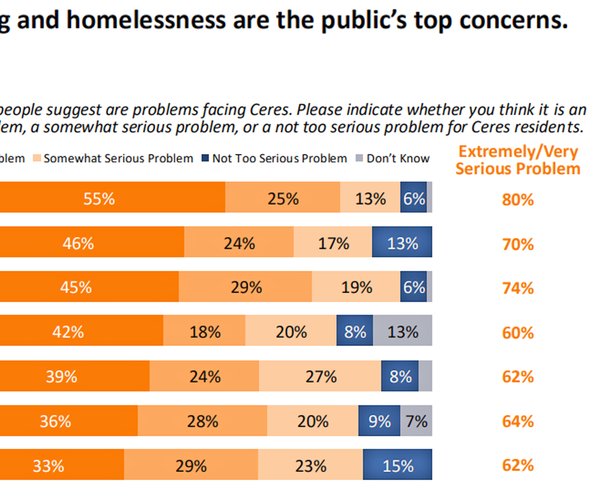The California Department of Food and Agriculture kicked off a series of listening sessions with a stop in Modesto on Feb. 7 to receive input from local farmers, ranchers and stakeholders regarding what the State's priorities should be for the 2018 Farm Bill.
"The farm bill is as important to San Francisco and Los Angeles as it is to the Central Valley," said CDFA Secretary Karen Ross. "This legislation ensures a robust farm safety net, promotes farming and ranching practices that are environmentally sound and provides important nutritional funding for our citizens. How our California congressional delegation helps to shape the federal farm bill will result in positive investments to our communities, our health, and agricultural economy."
The current farm bill, the Agricultural Act of 2014, will expire next year necessitating action by Congress. The farm bill provides an estimated $489 billion in federal funding nationwide to support a variety of food and agricultural programs including crop insurance, conservation, nutrition and trade.
Former CDFA secretary Bill Lyons spoke to the panel about how he felt the 2018 Farm Bill should include natural disaster risk management programs to serve as a "critically important safety net" for growers throughout the state.
"Unfortunately for California farmers and ranchers, they'll likely see their share of natural disasters in the next five years," said Lyons.
Lyons added that the key to the historical success of California agriculture has been the research and extension work provided by the University of California and California State University.
"Farm Bill ag research programs are an important contributor to the effort and need to be increased," said Lyons. "I'm looking forward to what the deans of UC and the state universities identify as their priorities in this area."
Lyons added that the Farm Service Agency, which is led by farmers throughout California and the United States, should have a much stronger role in determining and administering the funding of the United States Department of Agriculture's Natural Resources Conservation Service on farm conservation, environment and wildlife enhancement projects.
"In my opinion, NRCS should be reorganized, report to, and be administered by the Farm Service Agency," said Lyons. "I think it's very critical that the amount of programs that they handle on farm be directed by an agency that has a farmer input. I think there is a real disconnect in my opinion between actual farmers on the ground, on the field, with NRCS regulations and I think you need to have farmers who actually have to implement the conservation programs directing some of those programs more than NRCS."
Gabriele Ludwig, director of sustainability and environmental affairs at the Almond Board of California, suggested that the new farm bill support the Conservation Reserve Program that benefits honeybees in the Midwest.
"It may be surprising, but we care about the Conservation Reserve Program because that's where our bees spend their summers," said Ludwig. "So, for us having a good habitat is critical component to the life cycle of the honey bee."
Almond Alliance president Kelly Covello echoed Lyon's suggestion to support research in the new farm bill, stating that the Almond Alliance just had a six-hour task force meeting with the Almond Board to look at alternative uses and science regarding almond hulls, shells and orchard recycling.
"There are a lot of opportunities, but I think there are going to be some challenges to getting this research into commercial production," said Covello.
As the newly appointed provost and vice president for academic affairs of Stanislaus State, Kimberly Greer was also in attendance, and while she had no prepared statement on behalf of the university, she said that she was there to listen and find out the needs of the region.
"Stanislaus State is very committed to helping our region through the education of our students to continue to fuel the economic engine of the Valley," said Greer.
The listening session in Modesto marked the first of five throughout the state. CDFA officials will also hold public forums in Chico, Tulare, Salinas and Los Angeles during the remainder of the month.
"I am looking forward to this series of listening sessions," said Ross. "Each farm bill is written in a different atmosphere, and this particular farm bill is written in a time of completely different commodity prices."
Comments from Feb. 7 will be used to develop recommendations on the farm bill that will be shared with California's Congressional delegation and the leadership of the Senate and House agricultural communities. Public comments can also be emailed to FarmBill@cdfa.ca.gov.





